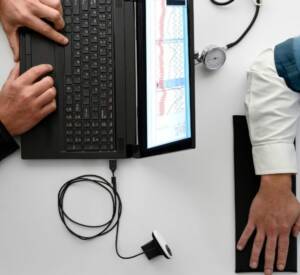In the world of recruitment and hiring, finding the right candidate for a job can be a daunting task. While interviews and background checks are standard parts of the hiring process, they may not always provide a complete picture of a candidate's suitability for a role. The reality is that candidates may not always be entirely honest during interviews, and this can lead to uncertainty for employers. This is where pre-employment lie detector tests come into play.
The Uncertainty of Hiring Decisions
When it comes to hiring or promoting someone, there is often an element of chance and risk involved. While interviews can help identify suitable candidates, they are not foolproof. Studies have shown that a significant number of candidates lie during the hiring process, making it challenging for employers to make informed decisions based solely on verbal skills and qualifications.

Imagine a scenario where you are hiring for a position that requires a high level of integrity, such as a security officer, a cashier handling cash transactions, or someone responsible for sensitive projects where corruption is a concern. In such cases, ensuring that you are selecting a candidate with honesty and loyalty becomes paramount. However, relying solely on interviews and resumes may not be sufficient to assess a candidate's trustworthiness.
The Role of Pre-Employment Lie Detector Tests
Pre-employment lie detector tests, also known as polygraph tests, have become a valuable tool in the hiring process for many industries. These tests are designed to measure physiological changes in a candidate's body when they answer specific questions. The premise behind a polygraph test is that when a person lies, their body exhibits physiological responses such as increased heart rate, changes in blood pressure, and sweating, which can be detected by the polygraph instrument.
How Pre-Employment Polygraph Tests Work
During a pre-employment polygraph test, a candidate is connected to a polygraph instrument, commonly known as a lie detector. The candidate is asked a series of questions while the instrument records physiological responses. These questions typically include inquiries related to the candidate's qualifications, work history, and any potential issues that might affect their suitability for the job.
The responses recorded by the polygraph are then analyzed by a trained examiner who can interpret the data to determine if there are signs of deception. It's important to note that while polygraph tests are considered a valuable tool, they are not infallible and should be used in conjunction with other screening methods.
Benefits of Pre-Employment Lie Detector Tests

There are several advantages to incorporating pre-employment lie detector tests into the hiring process:
- Identifying Candidate Integrity: Lie detector tests can help identify candidates who may not be entirely truthful during the interview process. This is especially important for roles where honesty and trustworthiness are critical.
- Reducing Hiring Risks: By detecting potential dishonesty early in the hiring process, employers can reduce the risk of making poor hiring decisions that could lead to financial losses or harm to the company's reputation.
- Enhancing Security: In industries such as security, where employees are entrusted with safeguarding assets or individuals, lie detector tests can provide an additional layer of security assurance.
- Child Protection: In roles that involve working with children, such as teachers or childcare providers, lie detector tests can help ensure the safety and well-being of vulnerable individuals.
- Confidence in Hiring Decisions: Incorporating polygraph tests can give employers greater confidence in their hiring decisions, knowing that they have taken additional steps to verify a candidate's integrity.
Industries Using Pre-Employment Lie Detector Tests
Pre-employment lie detector tests are used in various industries where candidate integrity is of utmost importance. Some of the sectors that commonly rely on these tests include:
- Security: Security firms often require employees who can be trusted with sensitive information and assets. Lie detector tests help ensure that security personnel are honest and reliable.
- Financial Services: Jobs involving handling finances or access to sensitive financial data may require candidates to undergo polygraph tests to prevent fraud and embezzlement.
- Law Enforcement: Police departments and law enforcement agencies may use lie detector tests as part of their hiring process to assess the integrity of potential officers.
- Childcare and Education: Positions involving the care and education of children may require lie detector tests to ensure the safety of young individuals.
- Government and Public Trust Roles: Government agencies and organizations in public trust roles may use pre-employment lie detector tests to maintain transparency and trustworthiness.
The Controversy Surrounding Pre-Employment Lie Detector Tests
While pre-employment lie detector tests offer benefits, they are not without controversy. Some critics argue that these tests can be unreliable and may lead to false positives or negatives. Additionally, there are concerns about invasion of privacy and potential discrimination.
In response to these concerns, there are legal regulations in place to govern the use of lie detector tests in employment. For example, in the United States, the Employee Polygraph Protection Act (EPPA) restricts the use of polygraph tests by private employers and sets guidelines for their administration.
Conclusion
In a world where hiring decisions can be uncertain, pre-employment lie detector tests offer a valuable tool to assess candidate integrity and reduce hiring risks. These tests provide employers with additional information to make informed decisions and ensure that they are selecting candidates who are trustworthy and suitable for the roles they are applying for.
However, it's essential to use pre-employment lie detector tests responsibly, in conjunction with other screening methods, and in compliance with legal regulations to protect both candidates' rights and the integrity of the hiring process. When used judiciously, lie detector tests can be a valuable asset in ensuring the right fit for your business and maintaining the highest standards of integrity and trustworthiness among your employees.